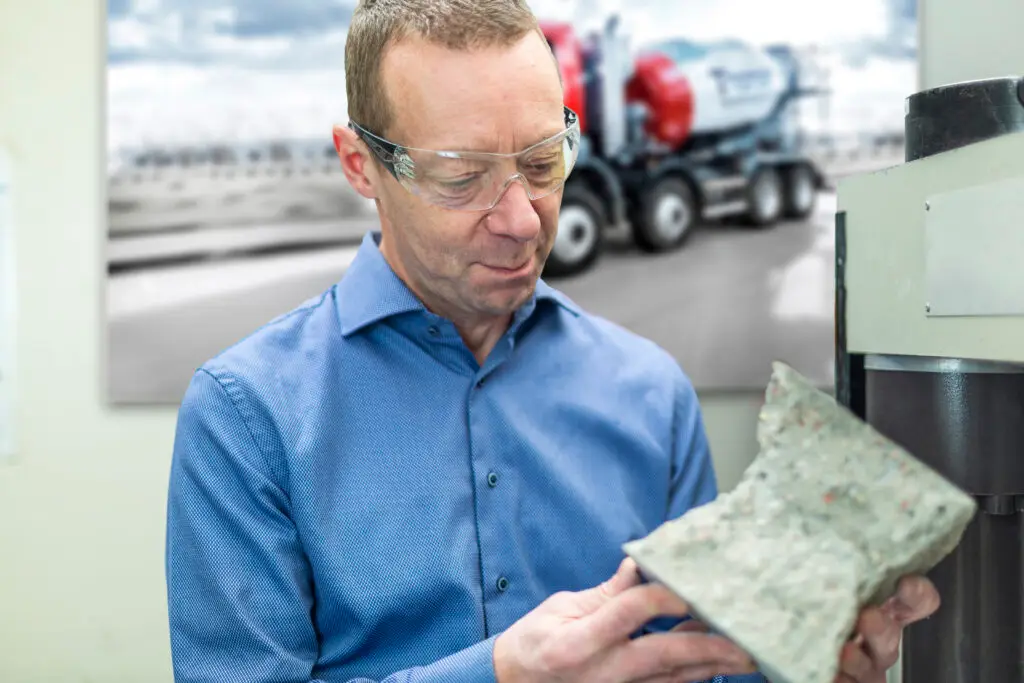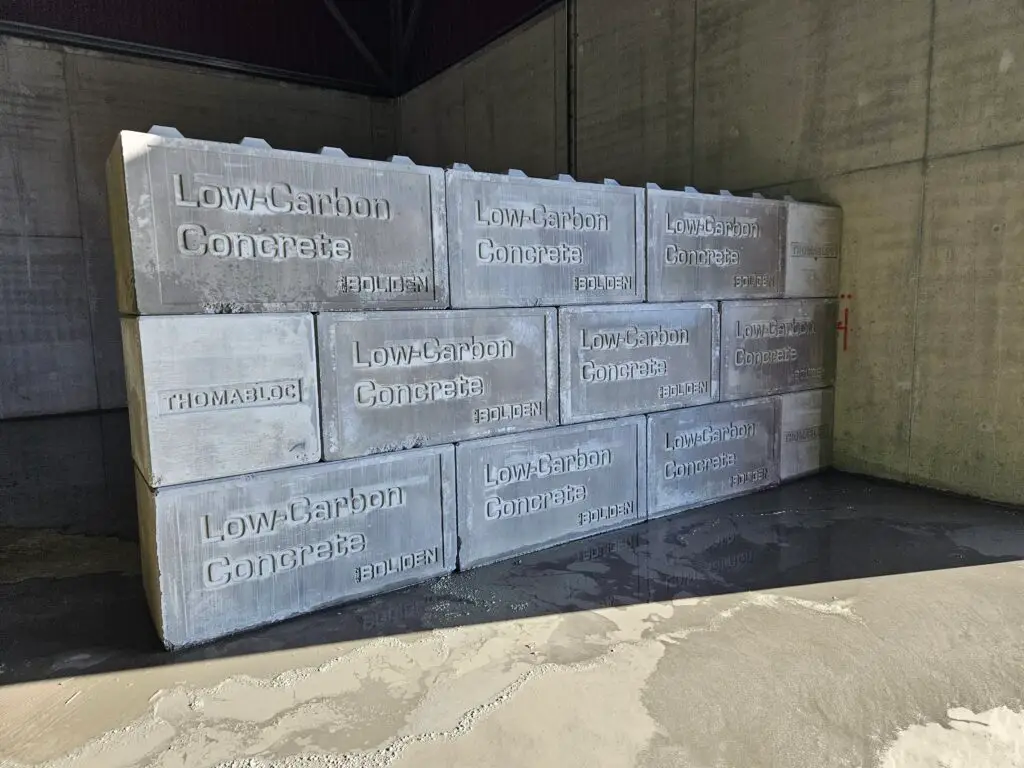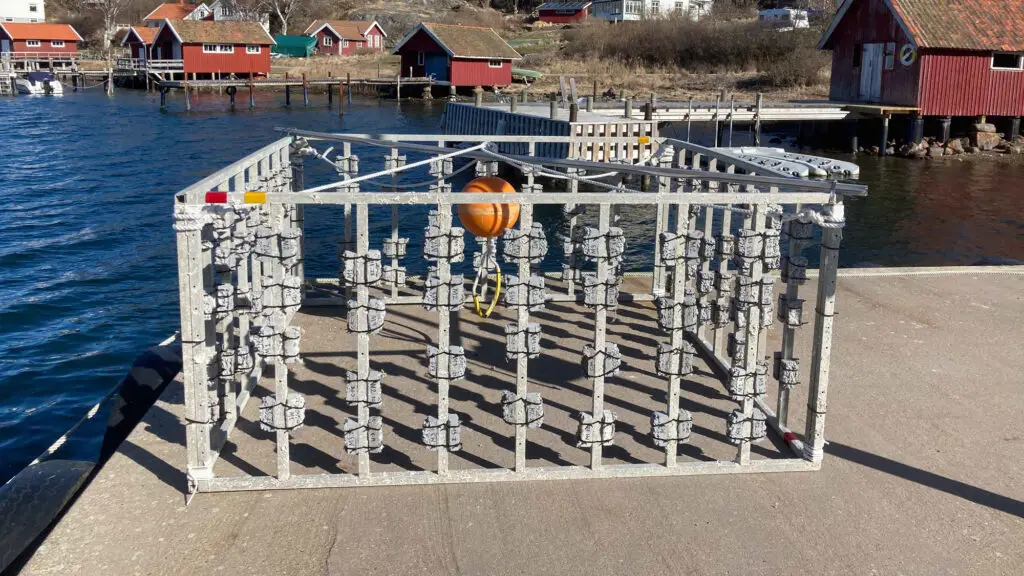For some time now, Thomas Concrete Group has been studying how the SCM product (Supplementary Cementitious Material) from Boliden‘s copper smelters reacts with different types of cement and how this type of pozzolanic product could replace large portions of traditional cement in concrete production.
“In our tests, we’ve explored replacement levels ranging from 15-65%. Today, Boliden’s product performs very well when replacing up to 30% of the cement. Even at 50%, the product works, though the strength is lower and develops more slowly. We are now intensively analyzing how we can increase the SCM product’s proportion while maintaining performance,” says Ingemar Löfgren, Head of R&D at Thomas Concrete Group.
The primary focus of the research at Thomas Concrete Group’s laboratory has been on the SCM product’s reactive characteristics and how they are influenced by additives. Additionally, tests have been conducted to examine how strength changes with varying amounts of the product. However, there are other areas of interest, such as how the slag interacts with other alternative binders like blast furnace slag and natural pozzolans, as well as how the chemical composition of the material needs to be adjusted to enhance its reactivity and performance.
“This is a very exciting project in many ways. Our work is about understanding how new materials function in concrete production and — not the least — how they will behave in 50 to 100 years,” says Ingemar Löfgren.

Multiple Advantages
The major advantages of using the SCM product from Boliden’s smelters are the reduced environmental impact achieved by utilizing by-products from production of, for example, copper. Another critical benefit, highlighted by Boliden, is its energy efficiency, as no additional electricity is required in the process.
“The concept of Boliden’s SCM product is globally scalable and can be produced from various waste materials or even primary raw materials, all within an energy-efficient system. This enables expansion in a global market,” says Åke Roos, Program Manager at Boliden.
The SCM product from Boliden could already be used in concrete production for simpler projects, but current standards for this type of material are lacking. For more complex construction projects, such as bridges, additional testing is required to examine long-term properties and durability.
“We need to establish new standards that assess materials based on their reactivity rather than solely their origin. We are also drafting various research projects related to this. Among other things, we need to investigate the durability of concrete and how characteristics develop over time when using different materials,” says Ingemar Löfgren.



